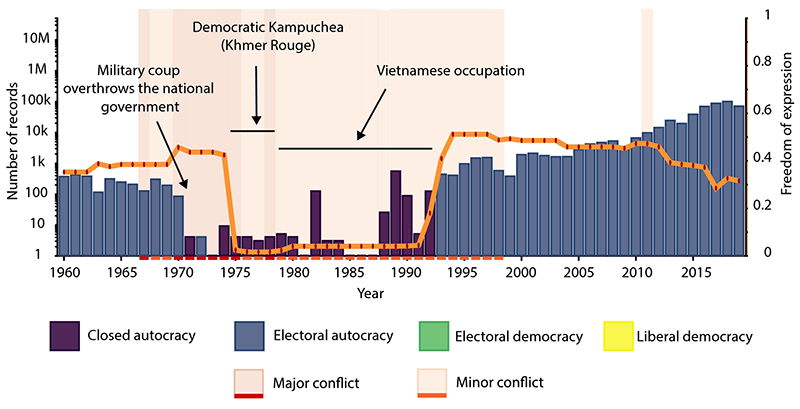The international team, is led by Alexander Zizka of the German Center for Integrative Biodiversity Research Halle-Jena-Leipzig (iDiv). Other team members are: Johannes Klein linked to the Gothenburg Global Biodiversity Centre (GGBC), Oskar Rydén, PhD student at the University of Gothenburg’s Department of Political Science, Staffan Lindberg, founder of the Varieties of Democracy Institute (University of Gothenburg), Daniel Edler (Umeå University, Sweden) and Alexandre Antonelli, now director of science at Royal Botanic Gardens, Kew, who has retained his connection with GGBC as its founder and former director.
The premise for the first-prize winner, Bio-Dem is that, while georeferenced species occurrence data has become essential to ecological and biodiversity research, its availability depends on non-biological factors, including the political setting at the time and place of collection. The tool combines biodiversity data available from the GBIF network, the Varieties of Democracy’s multidimensional dataset on the complex values of democratic systems, and information on colonial history from the Issue Correlates of War Project. This unique combination of sources enables users to investigate geographic and temporal relationships between socio-political variables and species occurrence records and generate hypotheses about the taxa and geographies in which they’re interested.

In Cambodia, Bio-Dem reveals how a period of political change and armed conflict between 1970 and 1992 relates to a decrease in biodiversity data available.
“We know relatively little about socio-political biases in relation to biodiversity data sampling, and Bio-Dem provides an easy way of visualizing the complex empirical relationships between given country’s history, socio-economic factors and political regimes and the availability of species occurrence records,” said Zizka. “We hope the app can help teachers to communicate the caveats of biodiversity data, biodiversity scientists to examine socio-political sources of data gaps and biases, and social scientists to explore how political systems affect scientific data collection and biodiversity conservation.”
For its selection as the top-prize winner, the Bio-Dem team will receive €12,000 from the annual prize pool of €20,000.
